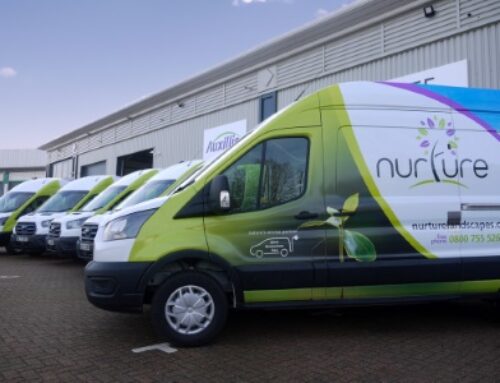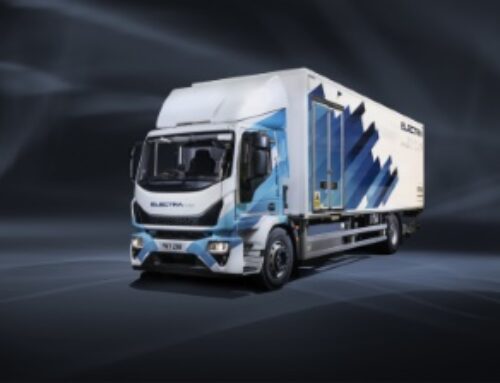Tructyre: driving down costs with tyre de-risking
 Tyre servicing specialist Tructyre has outlined the benefits that fleet operators can expect to reap in terms of tyre life, cost reduction and compliance, as a result of implementing a proactive tyre management system.
Tyre servicing specialist Tructyre has outlined the benefits that fleet operators can expect to reap in terms of tyre life, cost reduction and compliance, as a result of implementing a proactive tyre management system.
“With tyres being such an everyday item, sometimes the risk that they pose to compliance, safety, or even the day’s mission can be underestimated or overlooked completely,” said Tructyre.
“Scour the internet for ‘HGV tyre RTA incidents’ and you’ll see the indiscriminate and destructive force caused by a blow-out posing a hazard to everything in its path.
“The wise operator will deploy a well-designed and carefully structured proactive tyre management system to look after their assets. They understand the risks that poorly managed tyres pose to their operation, and they will reap the benefits of a well thought out and meticulously applied tyre service policy.
“This is classic de-risking: getting upstream of potential issues, targeting actions, and going after the benefits in a vigorous and proactive manner. And today, with the price of tyres reaching levels unimaginable only two years ago, a programme of de-risking tyres will help the operator save money too, without compromising on safety.”
Carl Williams, operations director of Hoylake Commercials, which operates a fleet of around 60 trailers and tractor units, says he would encourage operators to give wider consideration to their tyre management options.
Hoylake was looking for improved tyre mileage and a reduction in downtime of vehicles due to tyre-related issues. The firm turned to Tructyre for a proactive tyre management package, with a Michelin tyre group policy.
 “Getting our vehicles onboard with Tructyre was painless,” said Carl Williams.
“Getting our vehicles onboard with Tructyre was painless,” said Carl Williams.
“The fleet was set up on an inspection programme in minimal time and agreed policy product was deployed with immediate effect. We are seeing increased mileage through Michelin’s product quality and Tructyre’s regular fleet inspections, which have saved us further costs through less downtime, reduced call outs, and less new products being fitted.”
Tructyre advocates that operators should do everything possible to extend the length of time that tyres spend on vehicles.
“The name given to looking after tyres in the trade is ‘husbandry’, but at Tructyre we prefer to talk about life-extending services – because that’s what Tructyre is focused on, and it is what will drive efficiencies, effectiveness, and savings into the fleet,” the company continued.
“The nifty trick is to catch the tyres at precisely the right time to apply life-extending services. Assets that are bolted to the floor can be caught fairly easily, but assets that move around the country, or even the continent, present more of a challenge.
“The challenge is worth facing because each tyre caught in time for a life-extending service is an expensive tyre replacement avoided. A proactive and frequent inspection process will pay for itself very quickly by unlocking the benefits of the de-risking strategy.”
 The company highlights inspection frequency as a key consideration.
The company highlights inspection frequency as a key consideration.
“Trucks and trailers cover many miles between even monthly inspections, and a lot can happen to a set of tyres in that time. The more nuanced point is that tyres fitted to different axle positions on the same vehicle wear at different rates and will often be of differing ages.
“The provision of a life-extending service is about optimization, not maximisation. The difference is subtle but important. An optimal life-extending service will extend the service life of the tyre and will enhance and never diminish safety.”
Turning, regrooving, and twinning all extend the life of the tyre and enhance the safety of the vehicle, says Tructyre, adding that properly retreaded tyres are a perfectly safe, sensible, environmentally responsible, and economically beneficial tyre policy option.
“With a regular tyre inspection, tyres that are approaching the end of their service life can be identified and removed before they compromise the operator licence. Tyres that exhibit some tell-tale signs of impending problems can be removed before they compromise a mission.
“The number one most important aspect of de-risking tyres is pressure management. Ensure the tyre is inflated to the correct pressure – not too much and definitely not too little. With incorrect air pressure the vehicle will not be safe; continued use will damage the internal components of the tyre, use more fuel, and increase the likelihood of an inconvenient tyre failure.”
The most important benefits of de-risking to the operator, and other road users, are safety and compliance, says Tructyre – but the fruits of de-risking go further.
“Extra opportunities to save money on fuel, as well as tyres, are presented and this helps an operator to tread a little lighter on the environment by reducing their consumption of natural resources,” said the company.
“All-in-all de-risking demonstrates strategic intent to run a better business.”
Hoylake Commercials reports that it is seeing the benefits of having a professional tyre management system in place.
Carl Williams concluded: “We no longer have to worry about tyre management and we have added peace of mind that any requirement, nationally, will see our policy fitment at a consistent rate.
“The service and product option is a long term solution for Hoylake as opposed to simply looking at upfront tyre costs. Michelin’s Damage Guarantee has also given us that extra peace of mind. Tructyre’s proactive service coupled with a Michelin Group policy has saved me a lot of time, cost and headaches.”










